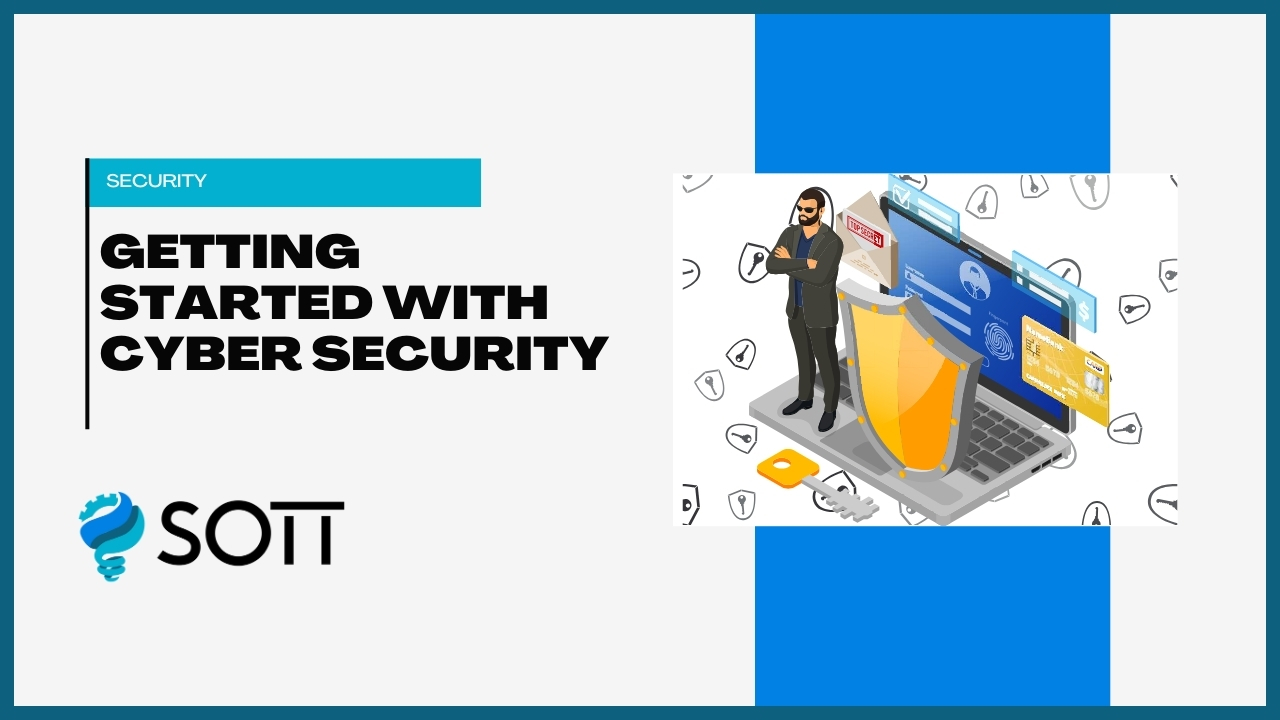Lesson 1: Introduction to Cybersecurity
-
What is Cybersecurity? - Definition, Importance in Modern Technology, Real-world Examples of Cyber Threats
-
Key Cybersecurity Objectives - Confidentiality, Integrity, Availability, Accountability
Lesson 2: Cyber Threats and Attack Types
-
Types of Cyber Threats - Malware (Ransomware, Viruses, Trojans), Phishing and Social Engineering, Denial of Service (DoS) and Distributed DoS (DDoS), Insider Threats, Advanced Persistent Threats (APTs)
-
Attack Vectors - Email, Web Applications, USB Devices
Lesson 3: Cybersecurity Frameworks and Standards
-
Overview of Frameworks - NIST Cybersecurity Framework, ISO/IEC 27001, COBIT, MITRE ATT&CK Framework
-
Industry-Specific Regulations - GDPR, HIPAA, PCI-DSS, CCPA (California Consumer Privacy Act), FISMA (Federal Information Security Management Act)
Lesson 4: Cybersecurity Technologies
-
Key Security Tools - Antivirus Software, Firewalls (Packet Filtering, Stateful Inspection, Next-Gen Firewalls), Intrusion Detection Systems (IDS) and Intrusion Prevention Systems (IPS), Virtual Private Networks (VPNs), Endpoint Detection and Response (EDR) Solutions
-
Security Hardware - Hardware Security Modules (HSMs), Network Security Appliances, Biometric Access Control Systems
Lesson 5: Basics of Risk Management in Cybersecurity
-
Understanding Risk - Threats, Vulnerabilities, Impact, and Likelihood, Risk Assessment Models (Qualitative, Quantitative)
-
Risk Mitigation Strategies - Accept, Avoid, Mitigate, or Transfer, Building Business Continuity and Disaster Recovery Plans
Lesson 1: Network Security
-
Network Defense Mechanisms - Firewalls (Basic and Advanced Configurations), IDS/IPS (Signature-Based and Anomaly-Based Detection), VPNs (IPSec, SSL)
-
Network Topologies and Design - Zero Trust Architecture, VLANs and Segmentation Strategies, Securing Wireless Networks (WPA3, WEP Vulnerabilities)
Lesson 2: Application Security
-
Securing Web Applications - OWASP Top 10 Threats (SQL Injection, XSS, etc.), Web Application Firewalls (WAF)
-
Secure Software Development Life Cycle (SDLC) - Shift-Left Security Practices, Static and Dynamic Code Analysis
Lesson 3: Identity and Access Management (IAM)
-
Key IAM Principles - Least Privilege Access, Role-Based Access Control (RBAC), Attribute-Based Access Control (ABAC), Zero Trust Identity Principles
-
Advanced Authentication Mechanisms - Multi-Factor Authentication (MFA), Passwordless Authentication, Biometric Systems
Lesson 4: Cryptography and Encryption
-
Cryptography Basics - Symmetric Encryption (AES, DES), Asymmetric Encryption (RSA, ECC), Hashing Algorithms (SHA, MD5)
-
Applications of Cryptography - SSL/TLS, Encrypted Messaging Protocols (Signal, PGP), Blockchain Security
Lesson 5: Data Security and Privacy
-
Data Protection Strategies - Encryption (Data at Rest and in Transit), Data Loss Prevention (DLP) Tools, Backup and Recovery Mechanisms
-
Privacy Best Practices - Privacy by Design, Compliance with Global Privacy Regulations
Lesson 1: Incident Response and Digital Forensics
-
Incident Response Lifecycle - Preparation, Detection and Analysis, Containment, Eradication, and Recovery, Post-Incident Activities
-
Digital Forensics Techniques - Memory and Disk Forensics, Log Analysis, Chain of Custody
Lesson 2: Cloud Security
-
Cloud Security Challenges - Data Misconfigurations, Cloud-Specific Threats (Container Escapes, API Vulnerabilities)
-
Securing Cloud Platforms - Identity and Access Controls in Cloud, Encryption and Key Management
Lesson 3: Advanced Threat Detection
-
SIEM Systems and Log Analysis - Log Aggregation, Threat Correlation and Alerting
-
Threat Hunting - Behavioral Analytics, Indicators of Compromise (IoCs)
Lesson 1: Governance, Risk, and Compliance (GRC)
-
GRC Basics - Policies, Procedures, and Standards, Risk Management Process
-
Compliance Requirements - GDPR, HIPAA, PCI DSS, SOX
Lesson 2: Emerging Technologies in Cybersecurity
-
AI and Machine Learning in Security - Predictive Threat Analysis, Automated Incident Response
-
Future Trends - Quantum Cryptography, Cybersecurity in IoT

- CategorySecurity
- LevelIntermediate
- Duration3 Months
- Available SeatsUnlimited
Course Key Highlights
Real-Time Experts
Learn from industry experts with real-time experience.
Placement Support
Get assistance in securing your dream job with our dedicated placement support.
Live Project
Work on live projects to gain hands-on experience.
Certified Professional
Become a certified professional with industry-recognized certification.
Affordable Fees
Get the best quality education at affordable fees.
Flexibility To Assist
Flexible learning options to assist you in every way possible.
No Cost EMI
Pay your course fees in easy installments with no cost EMI.
Free Soft Skills
Develop essential soft skills along with technical knowledge.
Popular Questions to Ask Before Choosing a Course
SOTT courses include comprehensive video lessons, hands-on projects, downloadable resources, and live mentorship sessions. Our curriculum is designed to provide you with all the tools you need to succeed in your chosen field.
No, SOTT courses are designed to be flexible. You can start learning whenever it suits you best, and you have lifetime access to the course materials to learn at your own pace.
To take a SOTT course, simply enroll in the course of your choice, and you will have access to all the lessons, resources, and mentorship opportunities available. You can learn from any device, at any time.
Yes, upon completing a SOTT course, you will receive a certificate of completion, which you can share with your network and use to showcase your newly acquired skills to potential employers.
If you need help, you can reach out to our support team or connect with your course mentor for guidance. We are here to ensure you have the best learning experience possible.




